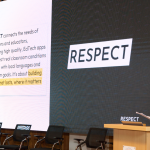March 7, 2020
School closures resulting from COVID-19 initiate a high demand for artificial intelligence and online learning products

The Director-General of UNESCO, Audrey Azoulay, released a statement that over 290 million students have been unable to attend school due to COVID-19. This has created pressure on schools to provide an alternative digital schooling model.
The standard solution for schools is to choose a platform that provides curriculum content that can be viewed in text or video format, alongside quizzes and other interactive content.
An alternative model for online learning involves AI, which arguably could replace the need for a teacher altogether, as students can follow individual learning plans that are adaptive and parents and pupils can receive real time feedback and assessment information.
Century Tech, a London based EdTech startup, is providing free help and support to schools in several countries. Depending on how the virus spreads in the UK, it is willing to offer its services to 29,056 schools in the UK affected by the outbreak. Further afield, it has partnered with up to 30 schools in China which deliver the National Curriculum for England and Wales.
Century Tech’s AI based platform incorporates a blend of machine learning algorithms and neuroscience to provide personalised learning opportunities for students.
Long term, Century Tech is poised to capitalise on the opportunity presented by the surge in demand for online learning. It will of course heighten the debate on how AI can be used ethically and the impact on teachers and education in general.
“ When serious disruption occurs, from natural disasters to outbreaks of disease, education has traditionally drastically suffered. We are increasingly offering our platform for free to in-need communities, such as Syrian refugees displaced in the Middle East, ” Priya Lakhani OBE, Founder and Chief Executive of Century Tech
Priya Lakhani, Founder and Chief Executive of Century Tech also co-founded the Institute for Ethical AI in Education (IEAIE) and she collaborated on a recently published preliminary report here:








